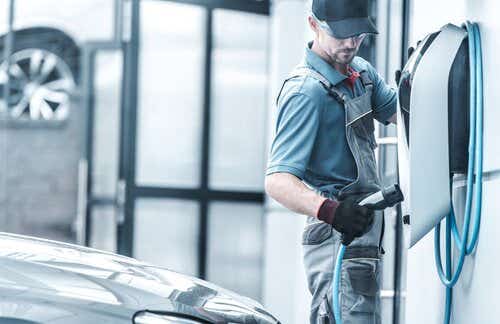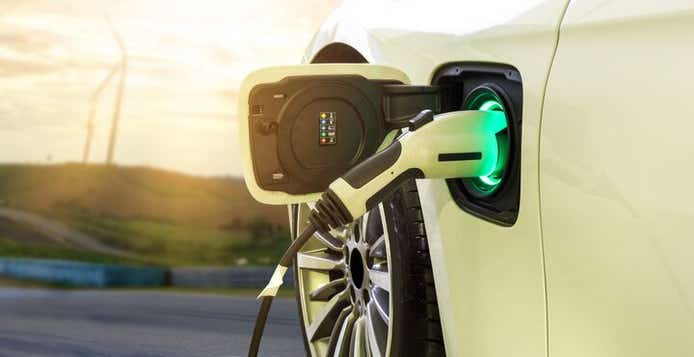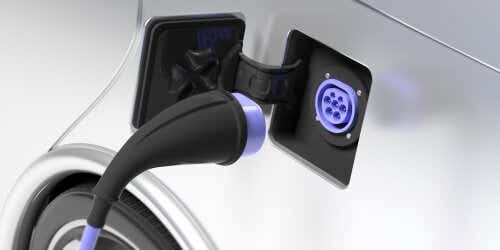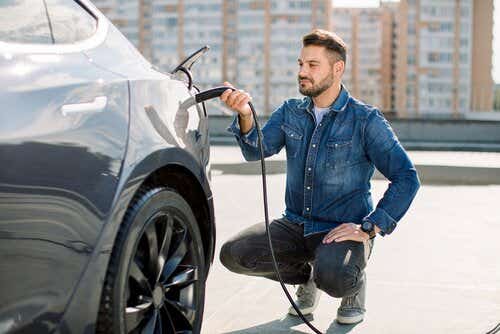Can I get a home charging point installed?
The first thing to work out is whether you can actually get a home EV charging point installed. There are three things to take into consideration:
You need to have your own Wi-Fi connection - the vast majority of homes in the UK have Wi-Fi, so this shouldn’t be a problem
You need to either own the property or have permission from your landlord
You need to have your own off-street parking (either a driveway or garage) - if you live in a block of flats, you’ll need your own private parking space.
Who will install my home electric charge point?
The installation will be carried out by an experienced, qualified electrician who specialises in electric vehicles and chargers. The EV charge point installer will be appointed by the dealer, energy supplier or individual company you’ve ordered the charger from.
What will be installed?
The only thing to be installed will be the charging unit, which can be tethered or untethered. If it's untethered (meaning any cable can connect to it), you will probably be able to order a cable at the same time, which will then be available for use when you need to connect to a public charging point.
What happens on the day of your electric car charging installation?
The installation process may vary slightly depending on who is conducting the installation, but it will broadly go as follows:
The installer arrives at the appointed installation time.
The installer will run through the positioning of the charger with you - this will be dependent on your power supply and where you park your car.
The installer will position and fix the charger to the wall, and will then have to turn off the power supply temporarily in order to safely connect it to the charger.
They will connect the charger to your home Wi-Fi network - this is so it can access software updates if necessary, report energy usage and so on.
They will then demonstrate the charger, including how to connect it to your car.
If they run into any issues that require more work than expected, a second day may have to be scheduled.
How long will it take to install a home EV charger?
Assuming everything goes to plan and there aren’t any major hiccups, it shouldn’t take more than about two or three hours to install a home EV charger. As noted above, though - if anything happens which means extra works are required, a second day will be scheduled for those works to take place.
How to prepare for your EV home charger installation
All you really need to do to prepare for your EV home charger installation is make sure the likely installation area is clean and clear of debris that might hamper the installer.
What comes as standard with a home EV install?
Along with the charging unit and the process of its installation (which includes safety testing), you’ll also receive cables and cable protectors to connect everything up as unobtrusively as possible.
How much does an EV home charger cost?
An EV home charger can cost between £250 and £1,000 depending on the type and whether you’ve managed to take advantage of any grants, such as the OLEV grant (though that runs out at the end of March 2022).




